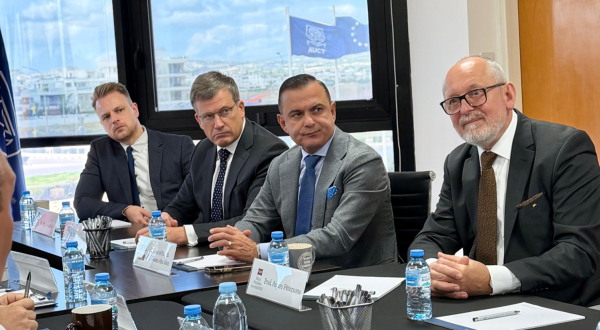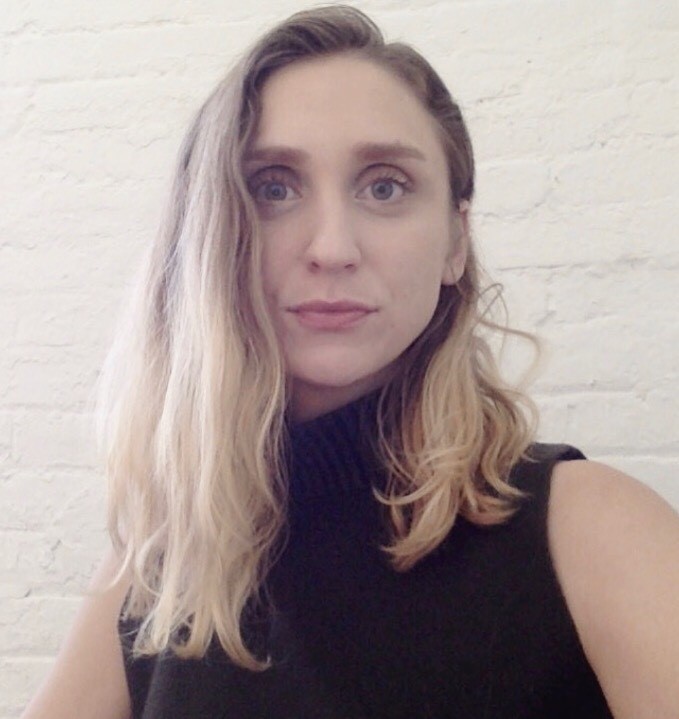What Will an Art Therapist from New York Be Researching at RSU?
Julia Volonts, an art therapist from New York, will carry out research at Rīga Stradiņš University (RSU) from September 2019 to May 2020. The researcher received the prestigious Fulbright scholarship that she will make full use of to analyse the psychological impact caused by historical events on individuals and on Latvian society, as well as how the impact of these events are transferred from one generation to the next.
During her time at RSU Volonts will attempt to understand how art therapy can contribute to reducing possible negative psychological consequences caused by historical events.
I meet with Volonts at the RSU Medical Education Technology Centre (METC) where she is participating in the international scientific practical conference Health and Personality Development: An Interdisciplinary Approach. The conference took place between 25 and 27 April 2019 and was hosted by the Department of Health Psychology and Paedagogy of the RSU Faculty of Public Health and Social Welfare. At the conference, Volonts spoke about the visual works created by art therapists themselves (so called “response art”) that they make in response to their work with patients. Response art helps art therapists process the material that comes up in their therapy work and helps them get deeper insight.
Professional career
Julia Volonts was born and raised in the US and holds a master’s degree from the Art Therapy programme at the New York School of Visual Arts. This school is both an educational centre and an art centre offering a wide range of programmes oriented towards training professional artists and art professionals as well as towards developing interdisciplinarity, i.e. the application of art-related knowledge to other social or economic sectors, such as medicine. Volonts currently works at New York Creative Arts Therapists – a team of licensed psychotherapists who apply art therapy methods in their work.
Why Latvia?
Why did Volonts decide to carry out her research in Latvia and at RSU seeing as she is a young researcher born and raised in the US and currently working in New York?
While Volonts herself was born in North America, her father was born in a refugee camp in Germany. Volonts’ grandparents had to flee their homeland to Germany during World War II, and her grandfather later decided to continue on to the US, which was at the time the safest scenario for the family. Volonts has always had strong ties to Latvia and an interest in the country. The first time she travelled to Latvia was at the age of twelve, and this trip is her eighth time here.
Her motivation to visit Latvia is not only connected to a desire to explore the current situation in the country and to conduct research, but also has to do with the events of the past. Volonts’ great-grandfather, Jānis Volonts, was the mayor of Daugavpils for 14 years. Jānis Volants was born in Preiļi, and was the first Latgalian to hold this position. Thanks to Jānis Volants, Daugavpils developed and became a modern city in the 1930s. Later, in 1937, he was appointed the Minister of Welfare. Following the Soviet occupation of Latvia on 14 June 1941, he was arrested and deported to the Vyatlag camp, in the Kirov district, together with his family as he was a former mayor and politician. It was here that he later passed away from a heart attack.
Volonts feels a close tie to Latvia. She is compelled by Latvian traditions and has enthusiastically followed the Latvian Song and Dance Festivals and has taken part in many summer solstice celebrations and other traditional events. She is not only familiar with the history of Latvia, but also feels the impact of history on its people herself. She is therefore certain that she will be able to draw many essential conclusions during the research she will conduct while at RSU.
Related news
 RSU management discusses development of medical education cooperation at high-level meetings in Cyprus International Cooperation
RSU management discusses development of medical education cooperation at high-level meetings in Cyprus International Cooperation



